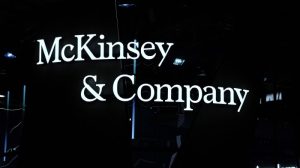Businesses warn Labour’s £25bn ‘tax on jobs’ will hurt hiring

Unlock the Editor’s Digest for free
Roula Khalaf, Editor of the FT, selects her favourite stories in this weekly newsletter.
Businesses have warned soaring costs from Labour’s “difficult to swallow” Budget risk causing job losses after chancellor Rachel Reeves raised the minimum wage and increased employment taxes.
Reeves raised employers’ national insurance contributions by 1.2p to 15p and reduced the earnings threshold at which the tax kicked in, measures she said would raise £25bn.
But the Office for Budget Responsibility said about a third of the total — or £9.7bn — could be offset by behaviour changes such as businesses cutting salaries or staff working fewer hours.
Labour has pledged to encourage business investment to help boost economic growth. But the increase means employers will bear the direct cost of the majority of her £40bn overall increase in tax revenues.
The changes to employers’ national insurance is “a tax on jobs”, Alex Baldock, chief executive of retailer Currys, told the Financial Times.
“It disproportionately hits high-employing sectors like leisure, hospitality and retail,” he said. “We want to unlock investment. We want to contribute towards growth. But clearly, the more the [tax] burden is added to, the worse it is for shops, jobs, prices and growth.”
An executive at one of the UK’s biggest employers warned: “Businesses will have to recover cost somehow. That’s likely to be from headcount.”
Some sectors were given a reprieve, with shares in oil and gas producers rising after tax changes were not as severe as expected.
Reeves confirmed the tax rate on the North Sea sector’s profits will rise as expected to 78 per cent until March 2031.
Some investment allowances that had allowed businesses to lower their tax bills will be cut, but so-called first-year allowances on capital spending, and allowances on decarbonisation projects were left in place, in what analysts at Jefferies said was a “chink of light” for the sector.
But Shevaun Haviland, director-general of the British Chambers of Commerce, said it was a “tough Budget for business to swallow” overall.
She welcomed Reeves’ move to widen protections for small businesses, but warned the increase would place a further cost burden on business, which have been hit in recent years by high inflation, rising wages and disruption from the Covid-19 pandemic.

The minimum wage will rise by 6.7 per cent to £12.21 an hour for adults with increases of up to 18 per cent for younger workers, Reeves announced on Wednesday.
Simon Dodd, chief executive of pub chain Young’s, said minimum wage rises “needed to be balanced with support elsewhere, as there isn’t a magic money tree in the gardens of hospitality that can sustain a 6.7 per cent increase in its cost base overnight”.
Verity Davidge, director of policy and manufacturers’ group Make UK, said bigger national insurance bills would “cause many [companies] to think twice about recruiting, make pay increases for employees much less likely and inevitably lead to some job losses”.
Rain Newton-Smith, chief executive of the CBI business lobby group, said the Budget was “tough” for businesses and the increased costs would “hit [their] ability to invest and ultimately make it more expensive to hire people or give pay rises”.
“Only the private sector can provide the scale of investment required to deliver the government’s growth agenda,” said Newton-Smith as she called for the government to double down on its promised “partnership with business”.
Reeves’ change to the fiscal rules to allow the government to increase borrowing would help investment in the long term, Newton-Smith said.

Business relief, which allows businesses to be passed from one generation without paying inheritance tax, has been scaled back for inheritances of more than £1mn. Neil Davy, chief executive of the Family Business UK lobby group, said the changes were “a betrayal” of family business owners and farmers “that will result in valuable businesses being closed, sold and jobs lost”.
The BCC’s Haviland noted Reeves had “looked to ease the pain by holding out a promise of better days ahead”.
The chancellor pledged to cap corporation tax at 25 per cent for the duration of the current parliament and to retain the full expensing regime that allows companies to reduce their tax bills by immediately deducting the cost of investments in plant and machinery from their profits.
An existing relief on business rates for the retail, hospitality and leisure sectors will be continued. But their discount will fall to 40 per cent from the current 75 per cent, meaning the rates bills of hundreds of thousands of businesses will more than double.
#Businesses #warn #Labours #25bn #tax #jobs #hurt #hiring





